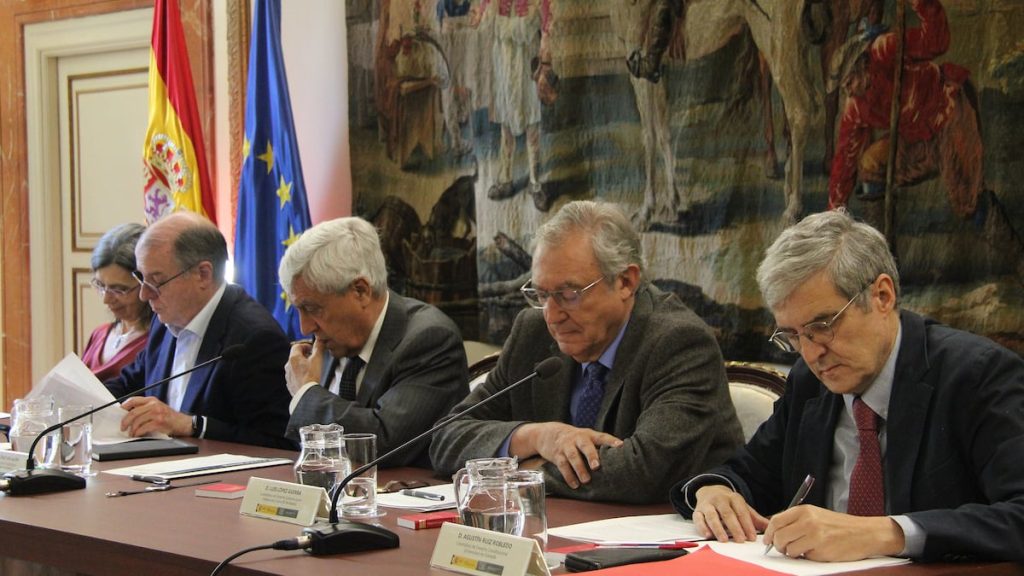A group of constitutional and penal law experts have expressed some agreement, with some exceptions, on the constitutionality of the amnesty law for those accused in the Catalan independence process, promoted by the PSOE and currently awaiting likely rejection by the Senate after its initial approval in Congress. The scholars have thanked the Center for Political and Constitutional Studies, under the Ministry of the Presidency, and its director Rocío García Mahamut for organizing a day of debates on the amnesty with a variety of speakers and a tone of discussion that is detached from the usual political tension. They emphasized the need to listen carefully to all that has been said in the field of Constitutional Law, as there is a problem with the tone of the debate that may lead to further contention.
The experts have criticized the amnesty law, pointing out the need for a broader political consensus, the use of emergency procedures to process the law, and some doubts regarding the principle of proportionality. They have also predicted new challenges in implementing the law and achieving the peaceful coexistence in Catalonia that it aims to promote. The first issue they addressed was the constitutional compatibility of the amnesty law, with opinions varying among the scholars. While some argued that it meets the formal and material requirements of the legal system, others questioned its alignment with the Constitution, emphasizing the risk involved in making such decisions.
Some scholars referred to studies conducted in the year 2000 on the compatibility of amnesty with the Constitution, highlighting the differing opinions on the matter. Agustín Ruiz Robledo expressed discomfort with contradicting his colleagues, stating that the prohibition of general amnesties by the Constitution extends to the legislative branch as well. Ana Carmona Contreras argued that the amnesty law is compatible with the Constitution as an exceptional instrument, but raised concerns about the restoration of social harmony and the potential conflict with this goal. She also criticized the urgent processing of the law to avoid scrutiny and the lack of extended parliamentary debate, emphasizing the need for strong political consensus.
The discussions continued with a debate on the national and international protection of fundamental rights in the amnesty law. Tereixa Freixes expressed concern about the law’s ability to achieve reconciliation in Catalonia, stating that such serious problems in the region cannot be resolved simply by passing an amnesty law. Manuel Cancio highlighted the message sent by the amnesty law that the legal process related to the Catalan independence movement had gone off track, questioning various aspects of the judicial proceedings and the charges brought against the leaders of the movement. These debates emphasized the complexities and challenges involved in implementing an amnesty law in a politically charged and sensitive context.
Overall, the constitutional and penal law experts presented a range of perspectives on the constitutionality and implications of the amnesty law for the Catalan independence process. While some found it compatible with the legal framework and a potential tool for promoting social harmony, others raised concerns about its procedural aspects and the potential for further discord in Catalonia. The discussions underscored the importance of careful consideration and a balanced approach to addressing complex legal and political issues in a divisive and contentious context.


